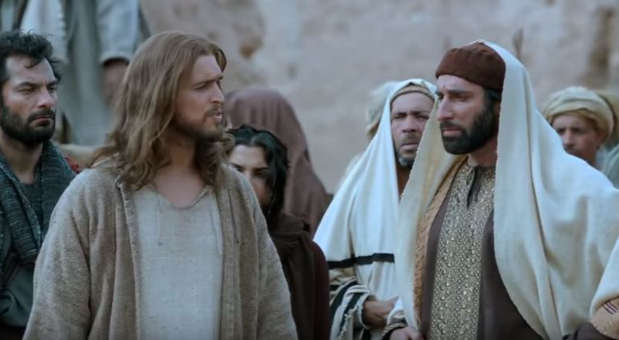Jesus scolded people for being “hypocrites,” but do you know what He meant by that word? It’s not what you think!
Jesus did not want His disciples to behave as hypocrites. He taught His disciples to conduct themselves discreetly and modestly. He warned them against ostentatious displays of piety. “Be sure that you not do your charitable deeds before men to be seen by them,” He said (Matt. 6:1).
In the English language today, we use the word “hypocrisy” to describe a person who publicly advocates a moral standard or code of ethics but, privately, does not observe it. For example, we think of a hypocrite as someone who only pretends to be pious when in public—a faker. That’s not how Jesus used the word.
When Jesus scolded people for practicing “hypocrisy,” He had a different shade of meaning in mind. The word “hypocrite” was used by Jews as a loan word from Greek. It referred to an actor or theater performer. When Jesus spoke of “hypocrites,” He used the word to describe people who loved to conduct a religious performance in front of others. The word did not imply insincerity or a double standard as it does in English today. The “hypocrite” of the Gospels is anyone who performs religious duties for the sake of being admired by others.
Jesus told His disciples to conduct three specific acts of righteousness privately: charity, prayer and fasting. Regarding each, He warned his disciples against any kind of showmanship (i.e. hypocrisy). This is not to say that He discouraged giving. He often admonished His disciples to give generously. Nor does it mean that He avoided participation in public prayer.
He and His disciples participated regularly in the liturgical services of both the synagogue and Temple. Neither does it imply that He discouraged participation in public fast days. We can be certain that Jesus and His disciples participated in the public fast days like the Day of Atonement (Yom Kippur). Instead, Jesus’ warning against “practicing your righteousness before men” pertained to personal, individual, voluntary fasts, prayers, and financial donations.
Jesus expected His disciples to fast, to pray and to give generously to charity, but He warned them against doing so with improper motives. If they practiced acts of righteousness for the sake of social prestige, they would ultimately find their charity, prayers and fasting detrimental to their spiritual health.
A person who takes on religious duties and disciplines only for the sake of earning the respect and esteem of other people finds no favor from God for his or her efforts. Such a person acts only for the sake of the love of men and for their praise, not for the love of God. That’s the type of person that Jesus referred to as “a hypocrite.”
It is not the performance of an act of righteousness in public which is the problem, but rather an act carried out with the intention that others will see the performance. As a rule, disciples of Jesus should not draw attention to their religious practices or acts of piety.
More than anyone, we should be discreet, modest and humble in our religious devotion, doing everything only for the sake of God’s eyes, not for the sake of what people will think of us. {eoa}
Daniel Thomas Lancaster is a writer, teacher, and the Director of Education at the Messianic ministry of First Fruits of Zion (www.ffoz.org), an international ministry with offices in Israel, Canada, and USA, bringing Messianic Jewish teaching to Christians and Jews. He is the author of several books about the Jewish roots of Christianity, the Jewishness of the New Testament, and he is the author of the Torah Club Bible study program (www.torahclub.org). He also serves as the teaching pastor at Beth Immanuel (www.bethimmanuel.org), a Messianic Jewish synagogue in Hudson, Wisconsin.







































